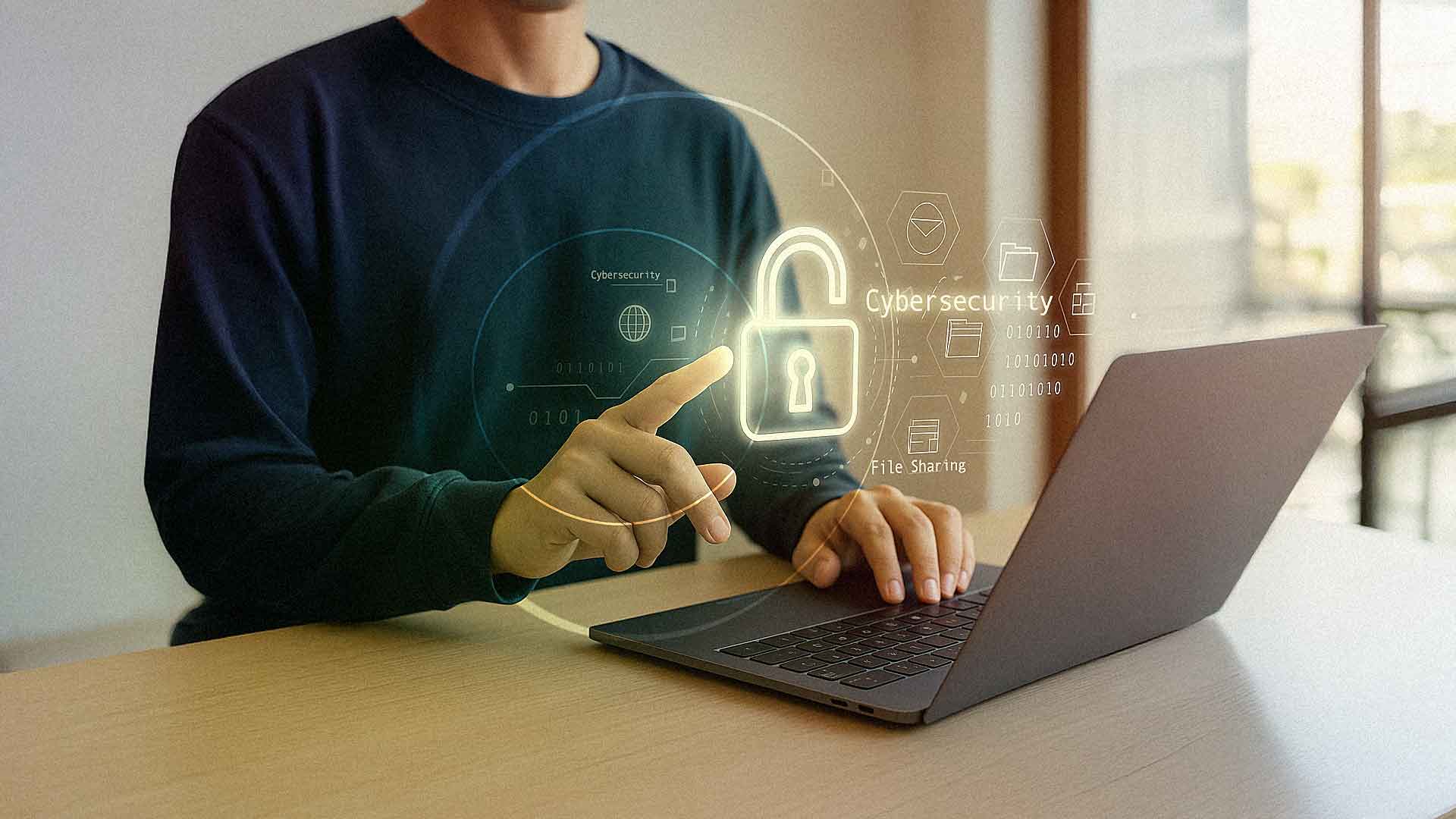Essential Cybersecurity Measures for Small Businesses
Let's take a closer look at the broader cybersecurity measures your small business should implement.
Firewalls should be your first line of defense. These systems monitor and control incoming and outgoing network traffic based on predetermined security rules.
Secure networks are also crucial, especially when dealing with sensitive information. Due to their vulnerability, public Wi-Fi networks should be avoided when handling business-related tasks.
Backing up your data regularly ensures that your business can recover lost or compromised files in the event of a data breach.
Lastly, reliable security software can detect and eliminate various threats, including viruses, malware, and ransomware.
Proactive Steps to Prevent Cyber Threats
Being proactive about cybersecurity can prevent potential threats before they become significant issues. Regularly monitoring and auditing your file-sharing practices and overall cybersecurity protocols will ensure they remain effective and up to date.
Similarly, keeping software, systems, and devices up to date is critical. Updates often include patches for vulnerabilities that cybercriminals could exploit. Postponing these updates could leave your small business exposed to unnecessary risks.
Partnering with Cybersecurity Experts
While a good deal of cybersecurity management can be handled in-house, partnering with cybersecurity experts can provide an added layer of protection. These professionals can offer services such as regular system audits, incident response, and even employee training programs.
This can be particularly beneficial for small to medium-sized businesses that lack a dedicated IT department.
The Long-Term Impact of Good Cybersecurity
A strong cybersecurity framework can have far-reaching benefits for your small business. Not only does it protect you from immediate threats, but it also contributes to the long-term health of your business.
Customers trust businesses that take cybersecurity seriously and protect their data. This trust can lead to stronger customer relationships, improved reputation, and, ultimately, business growth.
How To Build a Cybersecurity-Conscious Team
Training your team to understand the importance of cybersecurity is a must. Consider organizing regular training sessions to keep your employees up to date on the latest threats and best practices for counteracting them.
In addition, encourage a culture of accountability and vigilance. Simple steps, like not clicking on suspicious emails or links, using strong passwords, and only using secure networks for file sharing, can make a significant difference.
Your employees need to understand the risks associated with insecure file sharing and how to avoid common pitfalls. Regular training sessions, reminders, and assessments can go a long way in ensuring everyone in your business is well-prepared to tackle cybersecurity threats.
Protecting Your Small Business with Cybersecurity Measures
Adopting comprehensive cybersecurity measures is a fundamental step in safeguarding your small business. These may include firewall implementation, using secure networks, regular backups, and installing reliable security software.
While each of these plays a crucial role, none is more important than the security protocols around file sharing. An SMB must use secure platforms and practices to protect its valuable information.
The Final Word: Secure Your Business From Outside Threats
Securing your small business from cybersecurity threats, especially those related to file sharing, is crucial in today's digital landscape.
You can mitigate risks and safeguard your business by implementing best practices in secure file sharing, incorporating robust cybersecurity measures, and investing in employee training and education. Remember, a safe company is good for you and your customers, who trust you with their data.
Small business cybersecurity isn't just a requirement—it's an investment in the future of your business. From secure file-sharing practices to employee training, every aspect of your cybersecurity framework plays a crucial role in protecting your business.
The evolving nature of cyber threats means that your approach to cybersecurity should also be dynamic and ever-improving. But with diligent efforts and an awareness of best practices, your small business can navigate the digital landscape securely and confidently.
Remember, good cybersecurity isn't just about protection in the digital business world—it's a competitive advantage. To learn more about safeguarding your organization, reach out to us.




